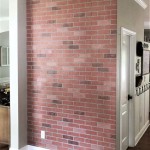Interior Design Course in Kenya: Requirements for International Students
Kenya has emerged as a compelling destination for international students seeking quality education across various disciplines, including interior design. The country's burgeoning construction and real estate sectors, coupled with a growing appreciation for aesthetic and functional spaces, have fueled the demand for skilled interior designers. This, in turn, has led to the development of diverse and comprehensive interior design courses offered by numerous reputable institutions.
For international students aspiring to pursue interior design studies in Kenya, understanding the specific admission requirements is crucial. These requirements ensure that students possess the necessary foundational knowledge and skills to successfully navigate the demanding curriculum and contribute meaningfully to the field. This article provides a detailed overview of the typical requirements for international students seeking admission to interior design courses in Kenyan institutions, covering academic qualifications, language proficiency, visa and immigration procedures, and financial documentation.
Academic Qualifications and Prerequisites
The academic requirements for admission to interior design courses in Kenya vary depending on the level of the course (certificate, diploma, or degree) and the specific institution. Generally, international students are expected to have completed their secondary education or its equivalent in their home country. The academic transcripts and certificates must be officially translated into English if they are not originally in English. The Kenyan education system recognizes various international qualifications, including the International Baccalaureate (IB), Cambridge International Examinations (IGCSE and A-Levels), and the United States High School Diploma. Equivalence of these qualifications is typically assessed by the Kenya National Qualifications Authority (KNQA) or the respective institution offering the course.
For a certificate course in interior design, a minimum grade of D+ (plus) or its equivalent in the Kenya Certificate of Secondary Education (KCSE) or a similar qualification is usually required. Diploma programs generally demand a higher grade, typically a C- (minus) or C (plain) in KCSE, or the equivalent in another recognized secondary education system. Degree programs in interior design typically require a minimum grade of C+ (plus) in KCSE, with specific requirements in subjects such as art, design, mathematics, and English. Some institutions may also consider relevant work experience or portfolio submissions as part of the admission process, particularly for mature students or those with a demonstrated interest in art and design.
It is imperative that prospective international students carefully review the admission criteria outlined by each institution they are considering, as specific requirements may differ significantly. Contacting the admissions office directly for clarification is highly recommended to ensure all necessary documentation is prepared and submitted accurately. Some institutions may also require a pre-admission interview or assessment to evaluate the student's aptitude and suitability for the course.
Language Proficiency Requirements
English is the language of instruction in most Kenyan educational institutions. Therefore, international students whose native language is not English are typically required to demonstrate proficiency in English through standardized tests or other forms of assessment. The most commonly accepted English proficiency tests include the Test of English as a Foreign Language (TOEFL) and the International English Language Testing System (IELTS). Institutions usually specify a minimum score requirement for these tests. For TOEFL, a score of 61 or higher on the internet-based test (iBT) is often required. For IELTS, a minimum overall band score of 5.5 or 6.0 is generally expected.
Some institutions may also accept alternative evidence of English proficiency, such as a certificate of completion from an accredited English language course or proof of previous education conducted entirely in English. Students who have completed their secondary or tertiary education in a country where English is the official language may be exempt from the English proficiency test requirement. However, it is always advisable to verify the specific requirements with the institution directly.
In cases where a student's English proficiency does not meet the required standards, some institutions may offer pre-sessional English language courses to help students improve their language skills before commencing their interior design studies. These courses provide intensive training in reading, writing, listening, and speaking, enabling students to effectively participate in academic discussions, comprehend lectures, and complete assignments successfully.
Visa and Immigration Procedures
International students seeking to study in Kenya are required to obtain a student visa from the Kenyan Department of Immigration Services. The application process typically involves submitting several documents, including a completed visa application form, a passport valid for at least six months beyond the intended stay, a letter of acceptance from a recognized educational institution in Kenya, proof of financial resources to cover tuition fees and living expenses, and medical insurance coverage.
The letter of acceptance from the institution is a critical document as it confirms that the student has been admitted to a specific course of study. The proof of financial resources can take the form of bank statements, scholarship award letters, or sponsorship declarations. The medical insurance policy should cover medical expenses incurred in Kenya. Other supporting documents that may be required include copies of academic certificates and transcripts, a police clearance certificate from the student's home country, and passport-sized photographs.
Upon arrival in Kenya, international students are required to register with the Department of Immigration Services and obtain a student pass. The student pass allows them to legally reside and study in Kenya for the duration of their course. It is important to note that the student pass is typically linked to the specific educational institution and course of study. Any changes in enrollment status, such as transferring to a different institution or changing courses, must be reported to the Department of Immigration Services to avoid complications with the student pass.
The visa and immigration procedures can be complex and time-consuming. Therefore, it is recommended that international students begin the application process well in advance of their intended arrival date in Kenya. The Kenyan Department of Immigration Services provides detailed information and guidance on the visa application process on its website. Seeking assistance from the international student office at the host institution can also be beneficial.
Financial Documentation and Tuition Fees
International students are expected to demonstrate that they have sufficient financial resources to cover their tuition fees, living expenses, and other related costs while studying in Kenya. This can be demonstrated through various forms of documentation, including bank statements, scholarship award letters, sponsorship declarations, or a combination of these. The specific amount of financial resources required will vary depending on the institution, the course of study, and the student's anticipated living expenses.
Tuition fees for interior design courses in Kenya vary widely depending on the institution and the level of the course. Public universities generally offer lower tuition fees compared to private universities. Certificate and diploma courses are typically less expensive than degree programs. International students are typically required to pay higher tuition fees compared to domestic students. In addition to tuition fees, students should also budget for other expenses such as accommodation, food, transportation, books, and stationery.
Before applying for admission, international students should carefully research the tuition fees and other associated costs at the institutions they are considering. It is also advisable to explore available scholarship opportunities and funding options to help offset the cost of education. Many international organizations and government agencies offer scholarships to students pursuing studies in developing countries. The Kenyan government also offers some scholarships to international students, although these are typically limited and highly competitive.
Securing adequate financial resources is a critical step in the admission process for international students. Failure to demonstrate sufficient financial capacity can result in visa denial and prevent students from pursuing their desired interior design studies in Kenya.
In summary, the requirements for international students seeking to pursue interior design courses in Kenya encompass academic qualifications, English language proficiency, visa and immigration procedures, and financial documentation. A thorough understanding of these requirements, along with meticulous preparation and timely submission of all necessary documents, is essential for a successful application process. Prospective students are strongly encouraged to consult directly with the admissions offices of their chosen institutions to obtain the most accurate and up-to-date information.

Interior Design Department Of Art

How Long Is An Interior Design Course In Kenya

How Long Is An Interior Design Course In Kenya

How Long Is An Interior Design Course In Kenya

Is Interior Design Marketable In Kenya

Is Interior Design Marketable In Kenya

Is Graphic Design Marketable In Kenya

Department Is Fashion Design And Marketing

How Much Does It Cost To Study Interior Design In Kenya College Of

The Best Interior Design Schools In Usa Laskasas
Related Posts








